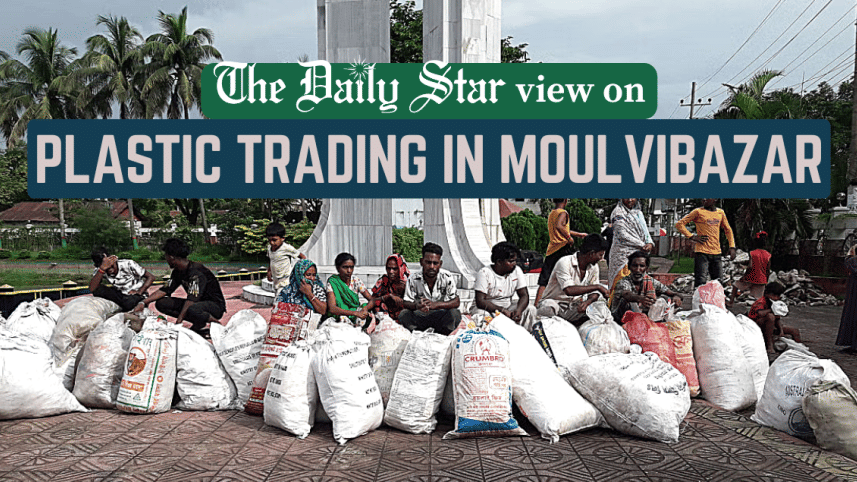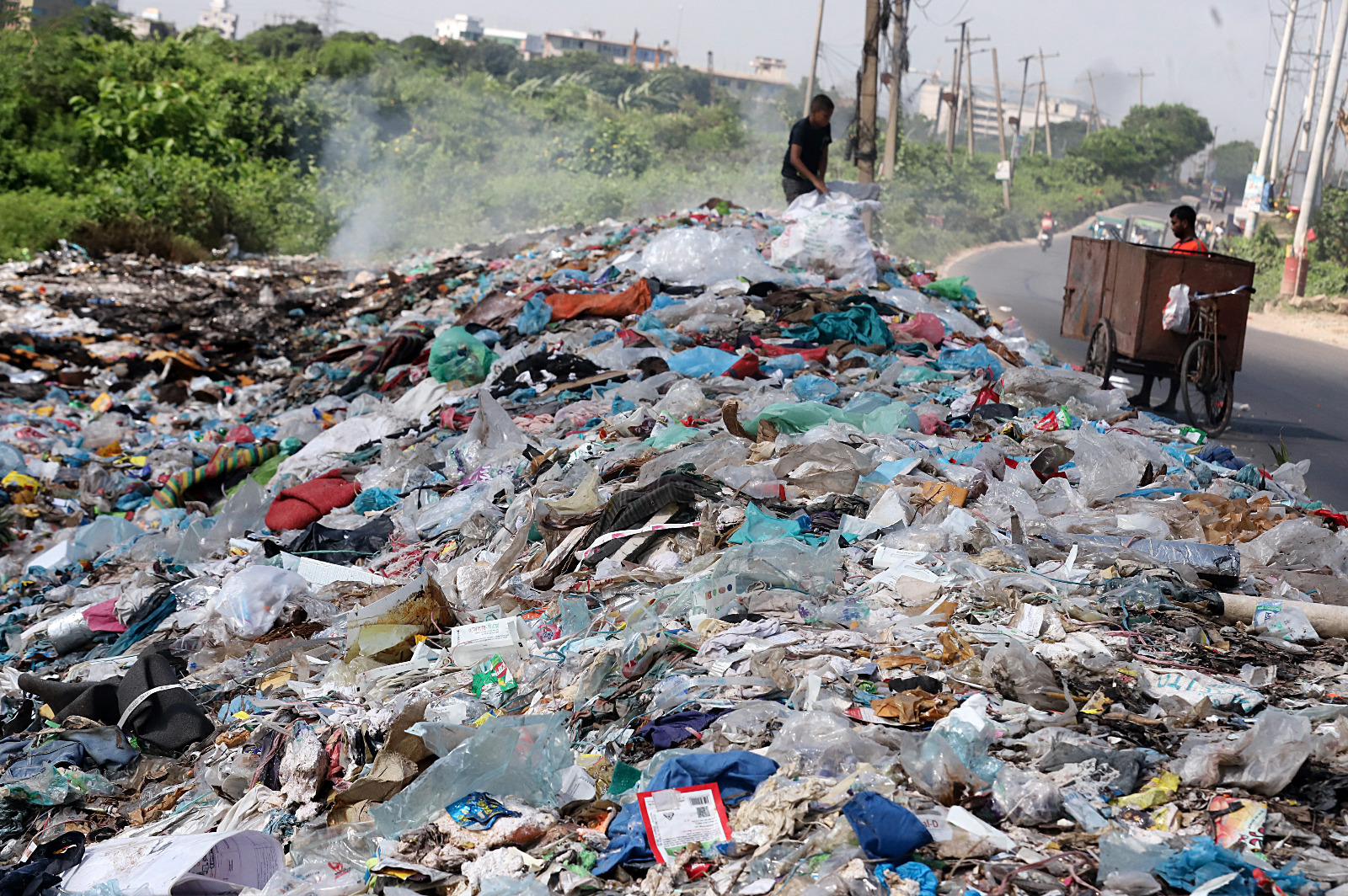A good initiative worth scaling up

We welcome the initiative of Moulvibazar municipality to set up a plastic trading booth where people are encouraged to deposit and sell their used plastic bottles and polythene. According to a report, anyone can sell plastic waste at Tk 50 per kilo. The inclusion of a monetary incentive is noteworthy as this is what prompted a huge response from the locals. What would have otherwise been discarded as waste has now been turned into an income-generating resource for them. In fact, one local described how he, after hearing about the initiative, collected four sacks of waste from the streets.
The Moulvibazar municipality is partially modelling an internationally known method called a deposit-return system, where people pay a surcharge on a product when it is purchased and get a rebate when it is returned. This is a well-established practice that is known to promote recycling among citizens at large. The response received by the Moulvibazar municipality is a case in point.
Plastics have been silently piling up in our environment even after Bangladesh banned single-use plastic bags in 2002. That policy has so far remained only in papers, while the country kept sinking deeper and deeper in plastic waste. Reportedly, 69 percent of disposable plastic products in the country are left uncollected, and only 31 percent are recycled. According to a World Bank report, Bangladesh's annual per capita plastic consumption in urban areas tripled to 9kgs in 2020 from 3kgs in 2005. Unfortunately, recycling plants or initiatives did not grow in proportion to that. As a result, the country ranks among the worst in the world in terms of mismanaged plastic waste.
Recycling plants are a great way to address this growing menace. Small-scale recycling initiatives in the northern districts have proven successful, as have the initiatives to produce yarns from plastic waste. We urge the government to scale up such initiatives, and incentivise those involved in recycling through proper policy and financial support. The Moulvibazar example should inspire other districts and municipalities to follow suit.



 For all latest news, follow The Daily Star's Google News channel.
For all latest news, follow The Daily Star's Google News channel. 

Comments